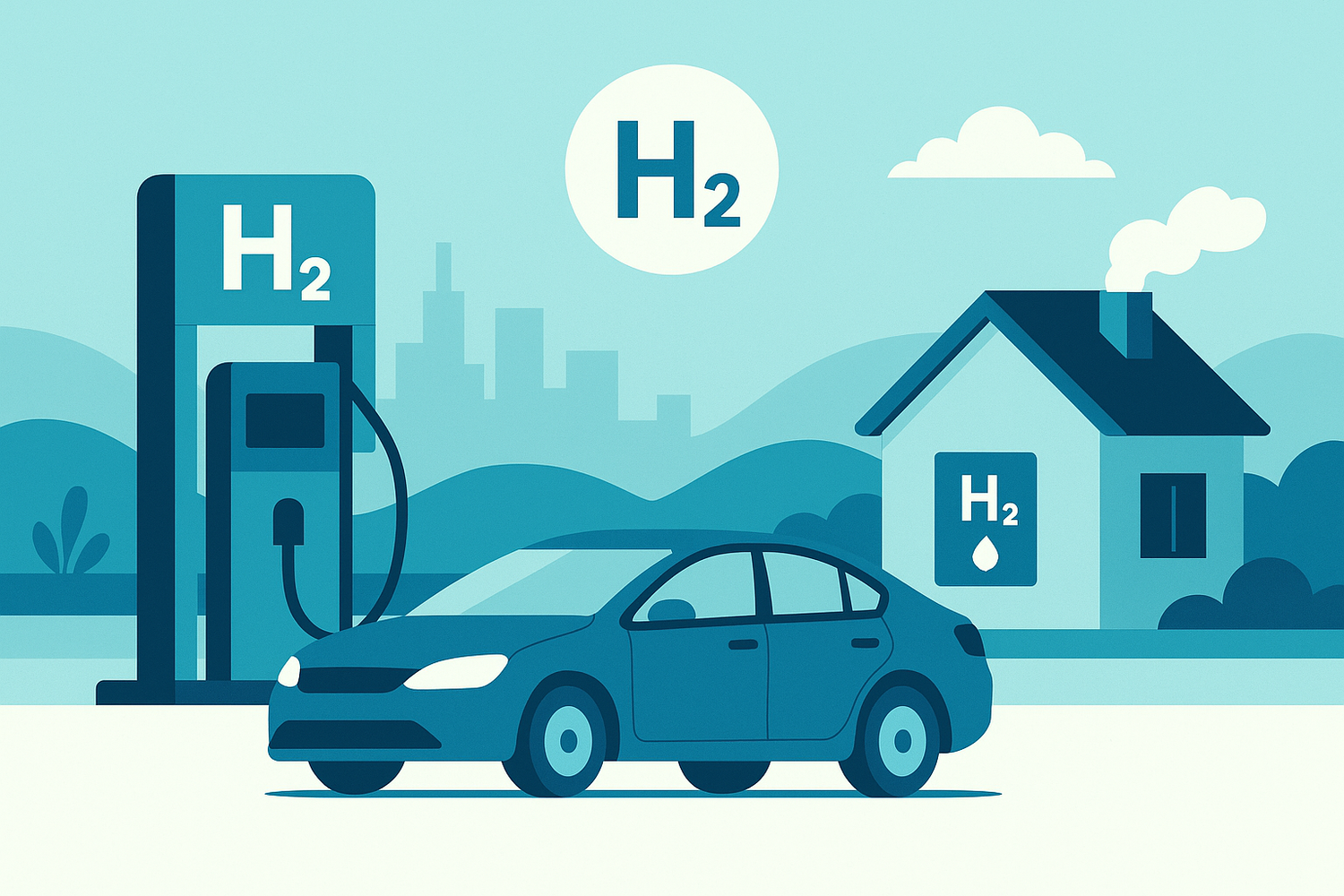Hydrogen as the Future of Clean Energy: From Cars to Homes
Hydrogen has been called the “fuel of the future” for decades. With rising concerns about climate change and energy security, interest in hydrogen is heating up again. Could this element truly power our cars, homes, and industries in a natural and healthy way for the planet? Let’s explore how hydrogen works, where it stands today, and what the future may hold.

What is hydrogen energy?
Hydrogen is the most abundant element in the universe. When used as an energy source, it produces only water vapor as a byproduct. This makes it attractive as a clean fuel compared to fossil fuels.
How hydrogen fuel cells work
-
Hydrogen enters a fuel cell where it reacts with oxygen.
-
The chemical reaction generates electricity, heat, and pure water.
-
Unlike burning fuel, this process doesn’t release harmful emissions.
Fuel cells can be scaled — from powering a car engine to supplying energy for an entire building.
Hydrogen cars vs. electric cars
-
Hydrogen cars: Refuel in minutes, longer range, but limited refueling stations.
-
Battery EVs: Wider infrastructure, cheaper, but longer charging times.
Both technologies aim to enhance sustainable mobility, but hydrogen could complement EVs in heavy transport and long-distance travel.
Challenges in hydrogen adoption
-
Producing hydrogen is still energy-intensive (especially “grey hydrogen” from natural gas).
-
Infrastructure for storage and refueling is limited.
-
Costs are high compared to established energy sources.
For hydrogen to become mainstream, production must shift toward green hydrogen, made using renewable energy.
The future of hydrogen in daily life
Hydrogen’s potential goes beyond cars:
-
Homes: Hydrogen fuel cells could power heating and electricity.
-
Industry: Steelmaking and shipping may switch to hydrogen to reduce emissions.
-
Energy storage: Excess renewable energy can be stored as hydrogen for later use.
From powering cars to supporting human biology
Hydrogen’s potential isn’t limited to energy and transportation. Just as it can fuel vehicles and homes in a clean way, hydrogen also plays a role in human health. Research into hydrogen-rich water suggests it may help reduce oxidative stress and support recovery, offering a natural and healthy way to enhance well-being.
If you’re curious to experience this side of hydrogen, the Zenith H2 bottle makes it easy. It generates fresh hydrogen water on the go, so you can explore the wellness benefits of hydrogen in your daily routine.

Final thoughts
Hydrogen isn’t a magic bullet, but it could enhance the transition to a low-carbon world. If technology and infrastructure continue to develop, hydrogen may soon become part of a more natural and healthy energy mix for our cars, homes, and beyond.


